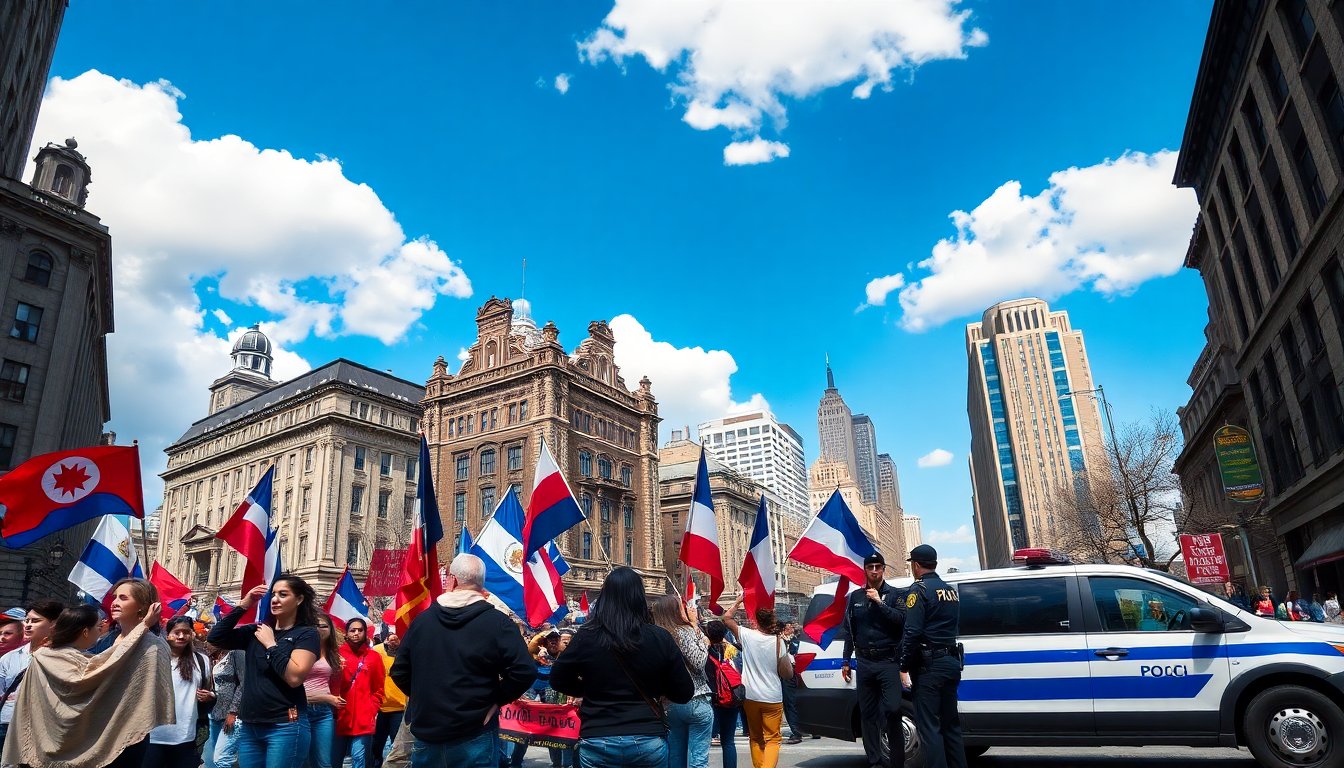Table of Contents
Recent events in Chicago have captured national attention, revealing the intricate political and social dynamics at play. President Trump’s declaration, “we’re going in,” following a violent Labor Day weekend, highlights the tension between federal and local authorities. Concurrently, the Defense Department’s decision to convert its legal teams into immigration judges raises significant questions regarding the intersection of law and immigration policy.
Additionally, the release of over 30,000 documents related to Jeffrey Epstein by the House Oversight Committee sheds light on ongoing investigations and public concerns about accountability. Each of these developments carries substantial implications for residents and policymakers alike.
Understanding the Chicago Situation
Chicago, often referred to as the Windy City, has faced numerous challenges, particularly concerning violence and crime. The Labor Day weekend violence has reignited debates about public safety and law enforcement strategies. President Trump’s response suggests a potential federal intervention, reflecting a broader narrative of federalism where local issues are addressed with national resources.
This situation raises critical questions about the role of federal authorities in local matters and the potential outcomes of such interventions.
Moreover, the interplay of federal involvement against the backdrop of community-led initiatives underscores a complex relationship between residents and government entities.
While some may view federal intervention as necessary to tackle escalating violence, others may perceive it as an overreach that undermines local governance. This tension is increasingly relevant as cities across the United States confront similar issues of safety, governance, and community trust.
Legal and Immigration Considerations
The Defense Department’s plan to transform its legal teams into immigration judges marks a significant shift in handling immigration cases. This decision aims to expedite processes and address a longstanding backlog that has plagued the system.
However, it raises concerns about the qualifications of military lawyers managing immigration matters, which traditionally require a nuanced understanding of both the law and the specifics of each case.
As immigration remains a contentious issue, this move could provoke further debate about the appropriateness of military involvement in civil matters. Critics argue that this transition may compromise the integrity of the judicial process, while proponents suggest it could lead to more efficient case management. The implications of this change will be closely monitored by various stakeholders, including immigrant advocacy groups and legal experts.
Accountability and Transparency in Governance
The House Oversight Committee’s release of over 30,000 documents related to Jeffrey Epstein contributes significantly to the ongoing discourse surrounding accountability and transparency in governance. Epstein’s case has raised numerous ethical and legal questions, particularly regarding the connections between high-profile individuals and alleged criminal activities. The public’s right to access information is crucial for fostering trust in governance.
As these documents are examined, they may reveal insights that could influence ongoing investigations and future policy decisions. Public interest in this case demonstrates a demand for accountability, essential for maintaining the integrity of institutions. The interplay between politics, law enforcement, and public perception will be pivotal as this narrative unfolds.
Looking Ahead
In conclusion, the events unfolding in Chicago and the broader implications of federal involvement in local matters, changes in legal processes, and the quest for accountability reflect a dynamic and often contentious landscape. As communities navigate these challenges, the responses from local, state, and federal entities will shape the future trajectory of governance and public trust. Observing how these events evolve will provide critical insights into the interplay of law, politics, and societal norms in contemporary America.





